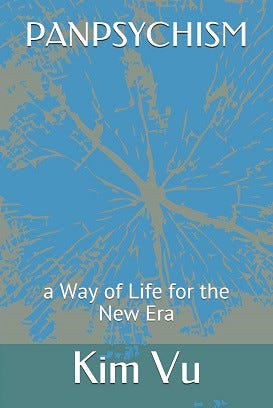Professor Simon Critchley (1960-) once stated the following words about professional philosophy:
“Although philosophy, since its inception in Plato, has always been linked to the academy, to more or less formal schools of thought, the professionalisation of philosophy is a recent phenomenon. And I think it’s a lamentable phenomenon.”
This is bizarre. The person — Professor Simon Critchley — who referred to “the academy” and the “professionalisation of philosophy” had been a professional philosopher in the academy for 14 years when he wrote the words above. And, before that, he’d been a student for five or six years.
Did he lament those facts?
Professor Critchley has now been imbedded in the academy since he was 22 years old. That’s for around 40 years. Though, to be accurate, he wrote the words above when he was 42 years old. He’s now 61. That said, he was already a professional philosopher (a professor) when he stated these views.
More specifically, Critchley first became an academic when he became a university fellow at University College Cardiff in 1988 (when he was 28). He was a full professor by 1999. He has also had positions at the University of Essex, the College International de Philosophie, the Johann Wolfgang Goethe Universität , the University of Nijmegen, the University of Sydney, the University of Notre Dame, the Cardozo Law School, the University of Oslo and the University of Texas. Critchley is also a professor of philosophy at the European Graduate School. And, since 2004, Critchley has been professor of philosophy at the New School for Social Research in New York.
This seeming lack of self-awareness (though as an adept academic, Critchley could easily rationalise it) is also displayed by “populariser of philosophy” Nigel Warburton (1962-). He too is strongly critical of both analytic philosophy and “the professionalisation of philosophy” generally. Yet Warburton himself has a strong and long academic background.
In terms of detail.
At first Warburton was a pupil at the fee-paying Sevenoaks School; which is one of the United Kingdom’s most expensive schools. He then gained a BA from the University of Bristol and a PhD from the University of Cambridge. Warburton was also a lecturer at the University of Nottingham and later joined the Department of Philosophy at the Open University.
So, like so many academics (such as Professor Simon Critchley) and ex-academics, Warburton isn’t afraid of having a go at academics — for being academics (i.e., not for other things). Indeed Warburton himself recognised this when he said that he was once in an
“awkward position as a lecturer because I didn’t feel completely committed to the academic world of philosophy”.
Warburton still spends much of his time interviewing, meeting and writing about academics — that is, professional philosophers. (Warburton’s Philosophy Bites has interviewed Barry C. Smith, Simon Blackburn, A. C. Grayling, Martha Nussbaum, Peter Singer, Kwame Anthony Appiah, Michael Dummett, Tzvetan Todorov, David Chalmers, C. A. J. Coady and many more. Almost — or literally — every one of these is a professional/academic philosopher. I have no problem with this. But I thought that Warburton did.)
So Warburton was a professional academic from before 1994 until 2013 and a student of philosophy before that. Indeed it’s highly likely that his publishers wouldn’t have been interested in Warburton’s popular philosophy if it weren’t for the fact that he’d previously gained a PhD from Cambridge University and also been an academic.
Of course it can be argued (in Critchley’s case at least) that someone can be a professional philosopher and also be critical of professional philosophy. Indeed some people may argue that Critchley is best placed to do so precisely because he “knows what he’s talking about”. But the argument isn’t that what Critchley says is automatically false because he’s a professional philosopher.(Some of what he says may be true.) The argument is that… well, he’s simply a hypocrite.
More relevantly and as will be seen in the following, Professor Critchley isn’t actually a critic of professionalised philosophy at all. He’s a critic of analytic philosophy, analytic philosophers and analytic philosophy departments. On the other hand, Critchley has been full of praise for the professional philosophy that’s been carried out at the places he has taught — and he waxes lyrically especially about the New School in New York. (This is where Critchley now teaches — see here.)
Professor Simon Critchley vs. Analytic Philosophy
Now take these statements from Professor Simon Critchley:
“To a certain extent, this professionalism insulates philosophers from other disciplines and encourages a certain lazy arrogance. What I dislike most about philosophers is the idea that they think because they are smart as philosophers they have nothing to learn from anybody else. You find this repeatedly.”
Which philosophers had Professor Critchley in mind?
He uses the word “philosophers”; yet it’s very clear that he meant analytic philosophers. That’s primarily because these words are embedded in a published interview in which the sins of analytic philosophy and analytic philosophers were the main subject. (Coincidentally, Nigel Warburton was also interviewed for that book and he said similar things — to Critchley — about both analytic philosophy and professional philosophy.)
Clearly Critchley only had his critical eyes on analytic philosophy. For example, he stated the following words:
“Just visit the Eastern Division annual meeting of the American Philosophical Association for an empirical confirmation of this thesis — it’s a meat market!”
The American Philosophical Association is an association of (almost exclusively) analytic philosophers.
So did Critchley honestly believe that there was no equivalent of the American Philosophical Association when it came to continental philosophers and academics like himself? Of course there was! Indeed considering Critchley’s 12 or more different academic positions, he’s been a perfect beneficiary of various continental-philosophy “meat markets”!
(The fact that Professor Critchley uses the gratuitous prefix “empirical” in the phrase “empirical confirmation” just shows how deeply embedded in the academy he was — even then.)
Critchley continues:
“To a certain extent, this professionalism insulates philosophers from other disciplines and encourages a certain lazy arrogance.”
All disciplines are isolated from other disciplines… to some degree. This is true of poststructuralism, literary theory, Critical Race Theory, history, anthropology and the other subjects taught at Professor Critchley’s New School in New York. It’s certainly true of physics, chemistry, etc. In fact it can be argued that that’s partly what makes a discipline a discipline — a degree of isolation from other disciplines.
That said, Critchley may well argue that philosophy should be different from these other subjects. Well, that depends…
Almost every analytic philosopher I know — both throughout the 20th century and today - did have a keen interest in physics, biology, ethics, neuroscience, mathematics, etc. And, more recently, in cognitive science. But Critchley seems to have been arguing (if implicitly) that analytic philosophers weren’t interested in the right things. That is, he stated that philosophers should learn “not just from cognitive scientists”. That hints at the fact that Critchley knew that analytic philosophers were interested in cognitive science — but that’s wasn’t enough for him. Indeed he went on to criticise what he calls “scientism”. This can be interpreted as meaning that the (bad) disciplines Critchley had in mind were the (hard?) sciences. Indeed he told us that
“one thread, and one thread, within contemporary philosophy is scientism”.
Here again it’s clear that Critchley meant analytic philosophy by “contemporary philosophy”. He also failed to realised that many analytic philosophers have been — and still are — strongly against scientism. (Philosophers such as G.E. Moore, Thomas Nagel, Alvin Plantinga, E.J. Lowe, etc.) That’s if the word “scientism” is anything more than a vague term of abuse.
So Critchley wants analytic philosophers to learn from (to use his own examples) “lawyers, historians, anthropologists”. Why these people? It must be because that’s what he and most continental philosophers are interested in. And, in parallel, on the whole they aren’t that interested in physics — or in cognitive science for that matter. This leads me to conclude that it’s not analytic philosophers not learning from other disciplines that irks Critchley: it’s their not learning from disciplines that Critchley himself has learned from. That is, those disciplines which have obvious political use value for (continental) philosophers and academics like Critchley.
Professor Critchley concludes:
“If philosophy isolates itself from other disciplines and from the culture at large it will die [].”
Analytic philosophy doesn’t “isolate[] itself from other disciplines”. Instead, perhaps it doesn’t have close enough relations to the disciplines which Critchley believes it should have relations to (e.g., Critchley’s examples of history, law, anthropology, politics, etc.).
And what does “culture at large” even mean?
All philosophy is part of culture — isn’t it? What else can it be part of? And are all other academic disciplines fully embedded in “the culture at large”? I don’t know what Critchley means by “culture at large”. But I do believe I have an idea what Critchley was getting at. My bet is that he meant that analytic philosophers aren’t (as the cliché has it) “politically committed” or as politically active as many continental philosophers and academics (such as Critchley) have been and still are. (Here is a video interview of Critchley in which he cites a long list of movements and examples of direct action which he claims to have been involved in — see 28 minutes and 57 seconds.) Alternatively, if analytic philosophers have been politically committed, then Critchley may well believe that they've been committed to the wrong political things!
Critchley For Continental Philosophy
Critchley categorically states that
“[a]nd philosophical questions have to be linked to non-philosophical discourses”.
Hasn’t that nearly always been the case for Western philosophy? And wasn’t it also true of analytic philosophy in the 20th century? After all, philosophy about philosophy is surely the Philosophy of Philosophy or metaphilosophy. (Traditionally, there has been more of this stuff on the continent that in the United Kingdom or the United States.) In addition, is the philosophy of science or the philosophy of mind really about philosophy itself? Many analytic philosophers in the 20th century also wrote about politics, aesthetics and ethics — wasn’t all that about what Critchley calls “non-philosophical discourses”?
Readers may also have noted the modal, absolutist and demanding “have to be” — as in “philosophical questions have to be [my italics] linked to non-philosophical discourses”. Do they? Who says so? And why do they say so? Of course demanding that all philosophical questions have to be linked to non-philosophical discourses is itself a philosophical — or, more accurately, a political — stance.
(Here’s a video of Critchley on the cusp of explicitly stating that any philosophy that’s not politically engaged — though engaged in in the correct kind of politics — is basically worthless . Critchley graphically expresses the clichéd and utterly conformist position found among very many continental philosophers — and, of course, among academics like Critchley. It dates back 170 years to Karl Marx himself. This very-self-conscious philosophical and political radicalism — at least as found in certain environments — is now the conservative position and indeed it has been since at least the 1960s — some 70 years ago. In other words, philosophical and political radicalism has been thoroughly entrenched in many institutions and environments for literally decades.)
Critchley then continued:
“It’s almost axiomatic in the continental tradition that philosophy will be linked to things outside itself, whether this is the aesthetic in early Schelling and German romantics, Christianity in Kierkegaard, political economy in Marx, psychoanalysis in Freud, and so on.”
This is odd because Critchley was arguing against 20th-century analytic philosophy when he stated these words. Yet he’s citing three or more pre-20th century examples. That is, there wasn’t really a “continental tradition” when Schelling, Kierkegaard and Marx were writing. Or, at the very least, there wasn’t a continental/analytic split. And it’s that split which Critchley was talking about.
Critchley’s examples are odd too.
Firstly, many analytic philosophers have indeed written on aesthetics. Sure; not as many as those who write about, say, science or consciousness. And analytic philosophers certainly haven’t written about aesthetics in the manner Schelling, etc. have done. Perhaps that was Critchley’s problem.
What about Karl Marx and “political economy”?
Well, firstly Marx didn’t see himself as a philosopher. In fact he explicitly argued against philosophy. As have many Marxists since the 19th century. (This is despite the early-late Marx division and the work of Althusser and others.)
And surely Marx took his words on political economy to be… well, political economy, not philosophy.
So what about Sigmund Freud?
He wasn’t a philosopher... or was he? Critchley may think that he was.
In any case, psychoanalysis wasn’t a “ thing[] outside” Freud’s philosophy — it was what Freud actually created and wrote about. This is like arguing that politics was outside Marx’s philosophy. (If it was philosophy at all — even some Marxists dispute this.) Something similar can be said about Kierkegaard's Christianity. It wasn’t outside his philosophy — it was at the very centre of it.
Conclusion
Just a final few words on the term “continental philosophy”.
Professor Simon Critchley tells us that
“[i]t’s almost axiomatic in the continental tradition that philosophy will be linked to things outside itself”.
Critchley uses the words “continental tradition” — not “continental philosophy” — in the above. Yet he’s used the term “continental philosophy” many times without putting scare quotes around it. Indeed take the single example of the book A Companion to Continental Philosophy, which Critchley edited and contributed to. (In that book he defends the term; although he does note problems with it — as I do and just about everyone does.)
Whenever any outsider criticises “continental philosophy”, continental philosophers and academics often say that “there’s no such thing as continental philosophy”. Then they add that the term “continental philosophy” is “an invention of analytic philosophers”. (Some cite Gilbert Ryle - who used the term in the 1940s — as the chief culprit.) Yet the term “continental philosophy” is also used by those who aren’t critical of continental philosophy. And, in these cases, it’s then deemed okay to use it.
Of course it’s possible that a fan of continental philosophy may criticise the term “continental philosophy” even when positive things are said about it. But, as yet, I’ve never come across this phenomenon.
To sum up. Professor Simon Critchley doesn’t like the fact that apples aren’t oranges. That is, he has a serious problem with professional analytic philosophers not having the same attitudes to philosophy and politics (as well as the same attitude on the relation of philosophy to politics) as professional continental philosophers — or the academics who champion them — do.















